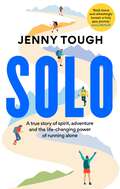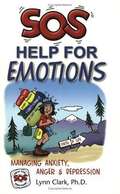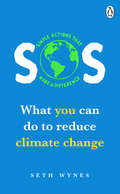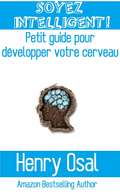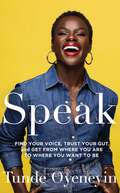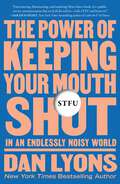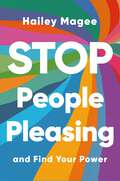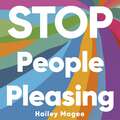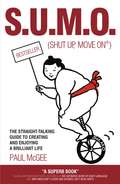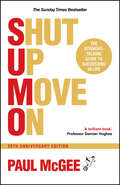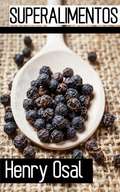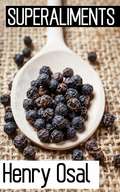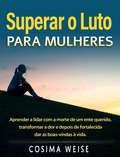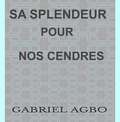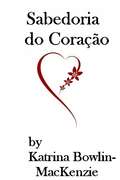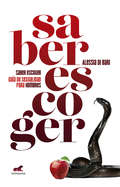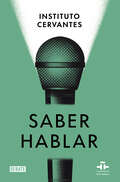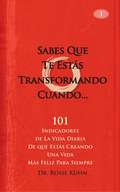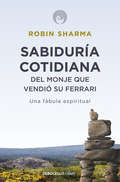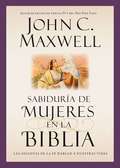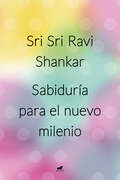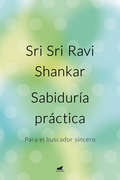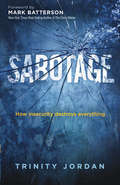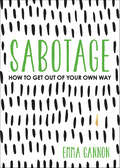- Table View
- List View
SOLO: What running across mountains taught me about life
by Jenny Tough'Jenny Tough writes with the same talent, imagination, and sheer courage that she displays in her athletic endeavours. This book will broaden the horizons of all who venture between its covers.' - Emily Chappell, author of Where There's a Will'I love that SOLO is part-self help and part adventure story. Jenny shows us all that the journey to self-belief comes with just as many ups and downs as the mountains she traverses and that, with a little trust in ourselves (and a few good cups of coffee) the next seemingly insurmountable pass is never beyond our reach.' - Anna McNuff, author of Bedtime Adventure Stories for Grown UpsJenny Tough is an endurance athlete who's best known for running and cycling in some of world's most challenging events - achieving accolades that are an inspiration to outdoor adventurers everywhere. But SOLO tells the story of a much more personal project: Jenny's quest to come to terms with feelings and emotions that were holding her back. Like runners at any level, she knew already that running made her feel better, and like so many of us, she knew that completing goals independently was empowering, too. So she set herself an audacious objective: to run - solo, unsupported, on her own - across mountain ranges on six continents, starting with one of the most remote locations on Earth in Kyrgystan. SOLO chronicles Jenny's journey every step of the way across the Tien Shan (Asia), the High Atlas (Africa), the Bolivian Andes (South America), the Southern Alps (Oceania), the Canadian Rockies (North America) and the Transylvanian Alps (Europe), as she learns lessons in self-esteem, resilience, bravery and so much more. What Jenny's story tells us most of all is that setting out to do things solo - whether the ambitious or the everyday - can be invigorating, encouraging and joyful. And her call to action to find strength, confidence and self-belief in everything we do will inspire and motivate.
SOS for Emotions: Managing Anxiety, Anger, and Depression (Second Edition)
by Lynn ClarkSOS is intended for both adults and older teens who desire to achieve increased self-knowledge and greater control over their unpleasant emotions and teaches principles and self-help methods from the cognitive behaviour therapy perspective.
SOS: What you can do to reduce climate change – simple actions that make a difference
by Seth Wynes'The most effective ways for individuals to reduce their carbon footprint' INewsClimate Change researcher, Seth Wynes, sets out in the simplest terms how you can make a real and positive impact.Make changes at home, at work, to how you shop, eat, live - start by finding one thing your family can change with this book and do it today. What you do matters - and the science proves it. How many actions can you tick of the list in this book to help save our planet?
SOYEZ INTELLIGENT !
by Henry Osal Ruth-Ellen AlcendorSOYEZ INTELLIGENT ! Petit guide pour développer votre cerveau Nous comptons vous apporter des informations précieuses, afin de vous aider à réellement développer votre intelligence. L'intelligence n'est rien d'autre que la capacité d'une personne à comprendre les choses et s'en adapter. L'intelligence évoque comment nous gérons la vie de manière astucieuse, pour la rendre meilleure au fil des jours. Aujourd'hui, découvrez les moyens de développer votre intelligence. Tous les points abordés sont centrés sur le développement de l'intelligence, donc lisez-les attentivement !
SPEAK: How to find your voice, trust your gut, and get from where you are to where you want to be
by Tunde OyeneyinSPEAK is a book about how to transform grief, setbacks and flaws into growth, self-confidence and triumph, from the massively popular Peloton instructor and fitness personality Tunde Oyeneyin. On any given day, thousands of devoted people clip into their spin bikes and have their lives changed by Tunde Oyeneyin. From her platform in a Peloton studio, she encourages riders with her trademark blend of positivity, empathy and motivational 'Tunde-isms', to push themselves to their limits both on and off the bike. Now, fans and readers everywhere can learn about her personal journey and discover how they too can 'live a life of purpose, on purpose' with Speak, a memoir-manifesto-guide to life inspired by her immensely popular programme of the same name. Taking us through each step of the SPEAK acronym - Surrender, Power, Empathy, Authenticity, and Knowledge - Oyeneyin shares the lessons she has learned about loss, love, body image and how she has successfully created an intentional, joyful life for herself, offering an accessible blueprint for anyone looking to make a positive change in their lives.
STFU: The Power of Keeping Your Mouth Shut in an Endlessly Noisy World
by Dan Lyons“Entertaining, illuminating, and inspiring! More than a book, it’s a public service announcement that we’d all do well to―well, STFU and listen to!”―Sarah Knight, New York Times bestselling author of Calm the F*ck Down New York Times bestselling author Dan Lyons is here to tell you - and don't take this the wrong way - that you really need to shut the f*ck up!Our noisy world has trained us to think that those who get in the last word win, when in fact it’s those who know how to stay silent who really hold the power. STFU is a book that unlocks this power and will change your life, freeing you to focus on what matters. Lyons combines leading behavioral science with actionable advice on how to communicate with intent, think critically, and open your mind and ears to the world around you.Talk less, get more. That’s what STFU is all about. Prescriptive, informative, and addictively readable, STFU gives you the tools to become your better self, whether that’s in the office, at home, online, or in your most treasured relationships. Because, after all, what you say is who you are.So take a deep breath, turn the page, and quietly change your life.
STOP PEOPLE PLEASING And Find Your Power
by Hailey Paige MageeDo you find it hard to say "no" to people? Do you tend to put others first? Do you feel guilty setting boundaries? If the answer to any of these questions is "yes", you may be a people pleaser.People-pleasing is a widespread but misunderstood response to trauma. It can have a huge impact on your mental health, showing up in common psychological conditions including anxiety, co-dependence, and depression. Left unchallenged, people-pleasing habits can lead to chronic discomfort, exhaustion, and resentment.In Stop People Pleasing, certified life coach Hailey Magee offers an action-based approach to breaking the people-pleasing pattern. Drawing on social science, psychological research, and coaching exercises, Magee gives you the practical tools you need to:- Understand the origins of your people-pleasing- Discover your own needs- Set empowered boundaries- Courageously advocate for yourselfWith fresh insight, heartfelt empathy, and a keen personal understanding of the pitfalls of people-pleasing, Magee will help you to break free from the cycle, overcome your guilt, and reconnect with your own feelings, needs, and aspirations.
STOP PEOPLE PLEASING And Find Your Power: Stop people-pleasing, get what you need and stand in your power
by Hailey Paige MageeDo you find it hard to say "no" to people? Do you tend to put others first? Do you feel guilty setting boundaries? If the answer to any of these questions is "yes", you may be a people pleaser.People-pleasing is a widespread but misunderstood response to trauma. It can have a huge impact on your mental health, showing up in common psychological conditions including anxiety, co-dependence, and depression. Left unchallenged, people-pleasing habits can lead to chronic discomfort, exhaustion, and resentment.In Stop People Pleasing, certified life coach Hailey Magee offers an action-based approach to breaking the people-pleasing pattern. Drawing on social science, psychological research, and coaching exercises, Magee gives you the practical tools you need to:- Understand the origins of your people-pleasing- Discover your own needs- Set empowered boundaries- Courageously advocate for yourselfWith fresh insight, heartfelt empathy, and a keen personal understanding of the pitfalls of people-pleasing, Magee will help you to break free from the cycle, overcome your guilt, and reconnect with your own feelings, needs, and aspirations.
SUCCESS HANDBOOK (Weight Watchers)
by Weight Watchers InternationalLook inside to discover: The secrets to staying motivated Your inner active person How to handle gains and plateaus Why it's OK to indulge How Weight Watchers can help change much more than your weight Step up to success. For the first time, there's a collection of top strategies for making Weight Watchers work for you - all in one place! Get started and get the rewards.
SUMO (Shut Up, Move On): The Straight-Talking Guide to Creating and Enjoying a Brilliant Life
by Paul Mcgee Fiona GriffithsS.U.M.O. stands for Shut Up, Move On. It's a phrase to say to ourselves (and sometimes others) when we are acting or thinking in a way that is hindering our ability to succeed. It doesn't necessarily mean 'get over it' or 'pull yourself together' (although there may be occasions when both responses are necessary). 'Shut Up' means stop what you're doing, take time out to reflect, let go of baggage and beliefs that hinder your potential. 'Move On' means tomorrow can be different from today, look for new possibilities, don't just think about it, take action. There are six S.U.M.O. principles that are designed to help you create and enjoy a brilliant life. If you are wrestling with life's challenges, these principles will help you do so more successfully. 1. Change Your T-Shirt - take responsibility for your own life and don't be a victim. 2. Develop Fruity Thinking - change your thinking and change your results. 3. Hippo Time is OK - understand how setbacks affect you and how to recover from them. 4. Remember the Beachball - increase your understanding and awareness of other people's world. 5. Learn Latin - change comes through action not intention. Overcome the tendency to put things off. 6. Ditch Doris Day - create your own future rather than leave it to chance. Forget the attitude 'que sera, sera, whatever will be, will be.' "A superb book. It combines honesty, humour and inspiration to help people move ahead in life." --Allan and Barbara Pease, authors of Why Men Don't Listen and Women Can't Read Maps "Powerful, simple and effective. A highly engaging and thought provoking book. Anyone who reads it is sure to look at themselves and the world differently as a result." --Octavius Black and Sebastian Bailey, The Mind Gym The S.U.M.O. guy is Paul McGee, an international speaker and author. He has been developing the S.U.M.O. principles over the last five years.
SUMO (Shut Up, Move On): The Straight-Talking Guide to Succeeding in Life, 20th Anniversary Edition
by Paul McGee‘SUMO is a brilliant book, packed with simple, inspirational and innovative ideas that can be applied to any aspect of your life. Paul’s knowledge, enthusiasm and ability to clearly explain these methods is unsurpassed. I heartily recommend this excellent read.’ Professor Damian Hughes, Author and Co-Host of The High Performance Podcast ‘Paul offers a fresh, practical and down to earth approach to change and getting the best from life. An uplifting read for anyone looking to find their spark.’ Owen O'Kane, Psychotherapist & Sunday Times Best Selling Author Want some straight-talking advice on how to really improve your life? In the 20th Anniversary Edition of SUMO (Shut Up, Move On): The Straight-Talking Guide to Succeeding in Life, bestselling author and personal development heavyweight Paul McGee delivers inspiring insights by revealing how hundreds of thousands of people around the world are fulfilling their potential, seizing opportunities, succeeding at home and at work, and increasing their resilience by adopting the SUMO approach to life. McGee combines hard-won personal insights, ancient wisdom, modern science, hilarious anecdotes, practical tips, and hands-on frameworks to offer a life-changing read. New to this edition is an exploration of how real people have profoundly improved their lives with the book's timeless principles and strategies, providing a testament to the enduring power of the SUMO principles. You'll find: Exciting and inspirational advice for taking control of your own life Ways to change your thinking, mindset, and approach to life's inevitable obstacles Ideas to improve your understanding and awareness of the way that other people see the world Perfect for people wanting a straight-talking approach to success, as well as those who are already fans of the SUMO way of thinking, this new 20th Anniversary Edition is a must-have resource for everyone who's ready to ditch the “whatever will be, will be” fatalism in favor of a practical guide to being the best you can be and achieving what you've always dreamed about.
SUPERALIMENTOS
by Henry Osal Claudio VazSUPERALIMENTOS é um guia conciso sobre uma série de alimentos que podemos encontrar facilmente em qualquer supermercado e que nos ajudarão a manter um estilo de vida mais saudável e uma mente mais em forma. Este guia é acompanhado de algumas sugestões para acompanhar estes alimentos, seja por meio de receitas simples ou mediante o acompanhamento de outros produtos igualmente sãos. Alimentos que incorporados a nossa dieta habitual, junto a uma prática moderada de atividade física, conseguirão que tenhamos una existência mais plena, com perspectivas mais positivas e aproveitando ao máximo as possibilidades de nosso corpo e de nossa mente. Cuidar-se nunca foi tão ameno e tão simples.
SUPERALIMENTS
by Henry Osal Andréanne LabbéSUPERALIMENTS est un guide concis portant sur une série d’aliments qui se trouvent facilement en supermarché et dont la consommation aide à maintenir un style de vie et un esprit sains. Vous trouverez dans ce livre quelques suggestions pour accompagner les aliments qui y sont présentés, que ce soit à travers des recettes simples ou des combinaisons avec d’autres produits bons pour la santé. Les aliments que nous choisissons d’intégrer à notre diète quotidienne et la pratique modérée d’activité physique sont à la base d’une vie remplie, positive, qui exploite au maximum les possibilités du corps et de l’esprit. Prendre soin de soi n’aura jamais été aussi facile et agréable.
SUPERAR O LUTO para mulheres: Aprender a lidar com a morte de um ente querido, transformar a dor para fortalecida receber a vida
by Cosima WeiseUm livro de auto-ajuda para superar o luto da mulher, para aprender a lidar com a morte de um ente querido, transformar a dor e voltar a receber a vida com alegria.
Sa splendeur pour nos cendres
by Gabriel AgboL'une des vertus qui ont toujours encouragé et encouragera toujours les croyants à s'accrocher à Dieu, même dans les moments de plus grand désespoir et de désarroi, et Sa capacité à changer les circonstances les plus difficiles en de merveilleux témoignages. J'appelle ceci la transmutation divine! Oui, vous pouvez l'appeler comme vous le souhaitez. Mais je pense que vous voyez où je veux en venir. Vous avez peut-être fait tout ce qui était en votre pouvoir pour vous sortir de cette situation et cela ne vous a mené à rien. On dirait au contraire que vos efforts ne vous ont amené que peine, chagrin, regrets, douleur, honte et des larmes. Dans de tels moments, nous sommes tentés de douter de l’amour de Dieu. Mais ne doutez pas. Lisez d’abord ce livre. Dieu est toujours le Dieu qui transforme les cendres en splendeur.
Sabedoria do Coração
by Katrina Bowlin-MacKenzieIntrodução Esse é um livro de questões. A maioria minhas, algumas encontradas na internet, sem autor listado e com autores que os nomes são citados após a questão. Espero que estas questões tragam alguma alegria e sabedoria para você. Este livro também pode ser usado para afirmações diárias. Abra em uma página aleatória, feche seus olhos e corra seus dedos pela página. O comentário em que parar será sua afirmação do dia.
Saber escoger. Guía de sexualidad para hombres
by Alessia Di Bari¿Los hombres siempre están pensando en sexo? ¿Es lo mismo eyacular que tener un orgasmo? ¿Existe el tamaño ideal? ¿Los hombres tienen punto G? ¿Hay remedio para la eyaculación precoz? Alessia Di Bari, experimentada sexóloga y terapeuta de pareja, te responde éstas y muchas otras preguntas sobre tu sexualidad. Asimismo, te muestra las dificultades con las que los hombres se enfrentan en el día a día: qué rol sexual deben cumplir, cómo romper con los estereotipos, si hay liberación sexual masculina... Igualmente, la autora te ofrece una serie de tips y tareas para que disfrutes de una vida sexual sana y placentera, ya sea que estés en pareja o no.
Saber hablar
by Instituto Cervantes Marta Albelda Marco Salvador Pons BorderíaNueva edición revisada y actualizada de un clásico español sobre la comunicación oral Vivimos rodeados de palabras, inmersos en un tráfico constante de expresiones que se producen en un mundo que es diálogo por naturaleza. Sin embargo, pocas veces nos detenemos a pensar en el poder que nos confiere el habla. Un buen discurso es la clave del éxito. Saber hablar es, desde su primera publicación en 2008, un referente entre los libros sobre comunicación oral, concebida esta como motor de las relaciones interpersonales, sociales, económicas y profesionales, en un tiempo en el que impera el dominio de la palabra. Este libro, que ahora se presenta en una edición revisada, actualizada y ampliada, ofrece la posibilidad de emplear el habla de manera adecuada según el momento y la situación, ya sea esta formal -la consulta del médico, el rectorado de una universidad, una entrevista de trabajo, una junta de vecinos, una exposición comercial- o coloquial -un encuentro con la familia o los amigos-, y según se utilice en un ámbito reducido o público y por canales presenciales o virtuales, tan extendidos en los últimos tiempos. Saber hablar explica con claridad, amenidad y rigor las pautas necesarias para expresar lo que pensamos; facilita la comunicación entre las personas, y da pautas para enriquecer los procedimientos de generación de ideas y para expresarlas con una mayor precisión y riqueza.
Sabes Que Te Estás Transformando Cuando...
by Marcela Gutiérrez Bravo Dr Rosie KuhnLa transformación es un gran negocio en estos días. Está en todas partes. Se encuentra en las universidades y en las corporaciones; en los libros de autoayuda, en las iglesias y organizaciones comunitarias. Pero ¿qué es y cómo sabes que te ha sucedido? La mayoría de las personas creen que transformar su vida será algo sin esfuerzo. El dinero de pronto fluirá, las carreras se volverán satisfactorias y vivirán felices para siempre con su dulce amor de sus sueños. La verdad es que ese es el mejor escenario. Es el viejo "Porque todo lo que un hombre (mujer) siembre, eso cosechará." Apuesta al tiempo y obtendrás las recompensas. ¡Fin de la historia! La transformación no es todo lo bueno que debiera ser. Dijo esto como experta en el campo del entrenamiento transformacional y de liderazgo. Y, aliento a todos mis clientes y entrenadores a pensar cuidadosamente antes de embarcarse en este viaje de transformación. No es fácil de andar y definitivamente no es para mariquitas o débiles de corazón. Para transformarse, uno tiene que cultivar la consciencia de lo que eligen hacer y pensar, de manera que puedan elegir de modo diferente - solamente en servicio de lo que dicen y quieren. Uno tiene que cambiar sus intenciones, sus percepciones y orientación y, en muchos casos, cambiar sus compromisos. Se requiere un infernal de trabajo, y en mi experiencia, lo que la mayoría de la gente no quiere es trabajar tan duro. Sé que no quería trabajar tan duro; Aún sigo sin quererlo. Sin embargo, me quedé enganchada en este proceso de transformación al momento que me embarco para otra aventura de vida. El título de uno de mis libros, The Unholy Path of a Reluctant Adventurer, (El camino profano de un aventurero reacio) lo dice todo. Al mismo tiempo, Sé que cada uno de nosotros tiene la capacidad de ser la máxima expresión de nuestra naturaleza esencial y única. Por ello estoy tan apasionada con mi trabajo
Sabiduría cotidiana del monje que vendió su Ferrari: Una fábula espiritual
by Robin Sharma¡Aprende las cinco lecciones básicas para equilibrar y combinar los aspectos profesionales y personales de nuestra vida! Julian era el monje que decidió vender su Ferrari: abogado de éxito, un buen día abandonó todo y se trasladó al Himalaya. Allí inició un proceso de aprendizaje con los sabios de Sivana, que le abrieron las puertas a nuevas formas de abordar la vida y los negocios. En este tercer libro Julian Mantle va a ayudar a su hermana Catherine, que se recupera de un gravísimo accidente de avión en el que ha perdido a sus dos socios. Ella está pasando por una crisis: no sabe equilibrar las exigencias de su vida profesional como empresaria y su vida familiar, y pide a Julian que le enseñe todo lo que sabe para descubrir su felicidad personal y familiar. Con su estilo ameno y divertido de siempre, Sabiduría cotidiana del monje que vendió su Ferrari nos enseña las cinco lecciones básicas para equilibrar y combinarlos aspectos profesionales y personales de nuestra vida, a educar correctamente a nuestros hijos y a tener una familia unida y feliz. Reseña:«El monje que vendió su Ferrari es una historia fascinante que nos enseña y entretiene a la vez.»Paulo Coelho
Sabiduría de mujeres en la Biblia: Las gigantas de la fe hablan a nuestras vidas (Giants of the Bible)
by John C. MaxwellIf you could spend a few minutes with biblical heroines Ruth, Sarah, Mary, and others, what valuable lessons would they share with you? In the tradition of Running with the Giants and Learning from the Giants, John Maxwell shares wisdom on life and leadership inspired by the Bible-this time focusing solely on the stories of nine incredible women. Learn how God blesses the promises you keep to Him, why you should follow your heart to find your hope, and how not to miss your moment with God. Read on your own or study with a group using the provided faith-building questions. You'll enjoy the journey with Maxwell as he imagines what it would be like to visit heaven and meet giants of the faith who had their lives transformed by God. You'll gain insights from:Ruth...for when you must make a decision but don't know what to do.Sarah...for when you can't understand God and impatience threatens to overwhelm you.Mary. . .for when God asks you to do something outside of your comfort zone.The women who influenced Maxwell inspired this book, and he includes the perspectives of those closest to him in this volume. They and the giants of the faith who continue to inspire them will encourage you to fulfill your destiny and leave a lasting, positive impression on your family and the world.
Sabiduría para el nuevo milenio
by Sri Sri Ravi ShankarA través de reflexiones sobre el amor, el ego, el karma, la reencarnación, la religión y los diferentes estímulos de la sociedad actual, pero sin despreciar todo lo aprendido, Sri Sri Ravi Shankar impulsa apropiarse de nuevos saberes, a través de la meditación y la respiración y combinando lo viejo con lo actual, para alcanzar una conciencia plena y lograr el verdadero desarrollo humano. «En esta era en que la tecnología ha avanzado, nos hemos preocupado muy poco por las necesidades emocionales y espirituales de la gente; ni en casa ni en la escuela se nos ha enseñado a manejar nuestra propia mente». En este libro, Sri Sri Ravi Shankar propone desaprender un cúmulo de conocimientos que limitan y restringen todas las posibilidades de nuestra vida. A través de diversas reflexiones sobre el amor, el ego, el karma, la reencarnación, la religión y los diferentes estímulos de la sociedad actual, pero sin despreciar todo lo aprendido, Sri Sri Ravi Shankar impulsa apropiarse de nuevos saberes, a través de la meditación y la respiración y combinando lo viejo con lo nuevo, para alcanzar una conciencia plena y lograr el verdadero desarrollo humano.
Sabiduría práctica: Para el buscador sincero
by Sri Sri Ravi ShankarSabiduría práctica rescata las reflexiones y definiciones que Sri Sri Ravi Shankar ofreció en diversas y célebres conferencias realizadas durante la segunda mitad de la década del 90. Con los ojos de hoy, esas enseñanzas están más vigentes y potentes que nunca y, a la vez, funcionan como un portal para todos los que quieran acercarse a la filosofía de El Arte de Vivir. ¿Qué es el Conocimiento? ¿Para qué vinimos a este mundo? ¿De qué forma debemos relacionarnos con nuestro ego? ¿Cuál es el poder de la meditación? ¿Cómo liberarnos de nuestros malos hábitos? ¿Qué hacemos y cómo lidiamos con la duda y la culpa? ¿Cómo potenciar nuestra mente? ¿Es posible llegar a la Verdad? ¿Cuál es el valor de silencio? ¿Qué pasa con los apegos? ¿Y el aburrimiento? ¿Cómo podemos trabajar con nuestra respiración para vivir mejor? Estas y otras preguntas que desafían y cuestionan a todos encuentran su respuesta en este libro.
Sabotage: How Insecurity Destroys Everything
by Trinity JordanWithout proper respect for ourselves, we don’t really live connected with God and others the way God has designed. During fourteen years of pastoral ministry Trinity Jordan has walked with a lot of people through their struggles. What he has noticed is that THIS is really about THAT in their lives. The THAT is almost always rooted in insecurity. Our unlove, lack of confidence, and acceptance of ourselves have alienated us from God and others. When Jesus says the greatest commandment is to love God and love others as we love ourselves--the key in that verse is us loving ourselves. Insecurity sabotages the abundant life God has for us here on earth. Sabotage deals with the root issues behind our insecurities, including comparing ourselves with others, lies we tell ourselves, discontent, and more. Addressing these issues will result in healthy relationships across the board--coworkers, church members, spouses, children, strangers, friends, family, and GOD.
Sabotage: How to Get Out of Your Own Way
by Emma GannonHow do we get out of our own way? With personal stories and research-based insights multi-hyphenate Emma Gannon explores her own relationship with self-sabotage and presents a quick, meaningful guide to help you recognize your own forms of self doubt, identify what is holding you back, and the steps you can take to loosen its grip.
